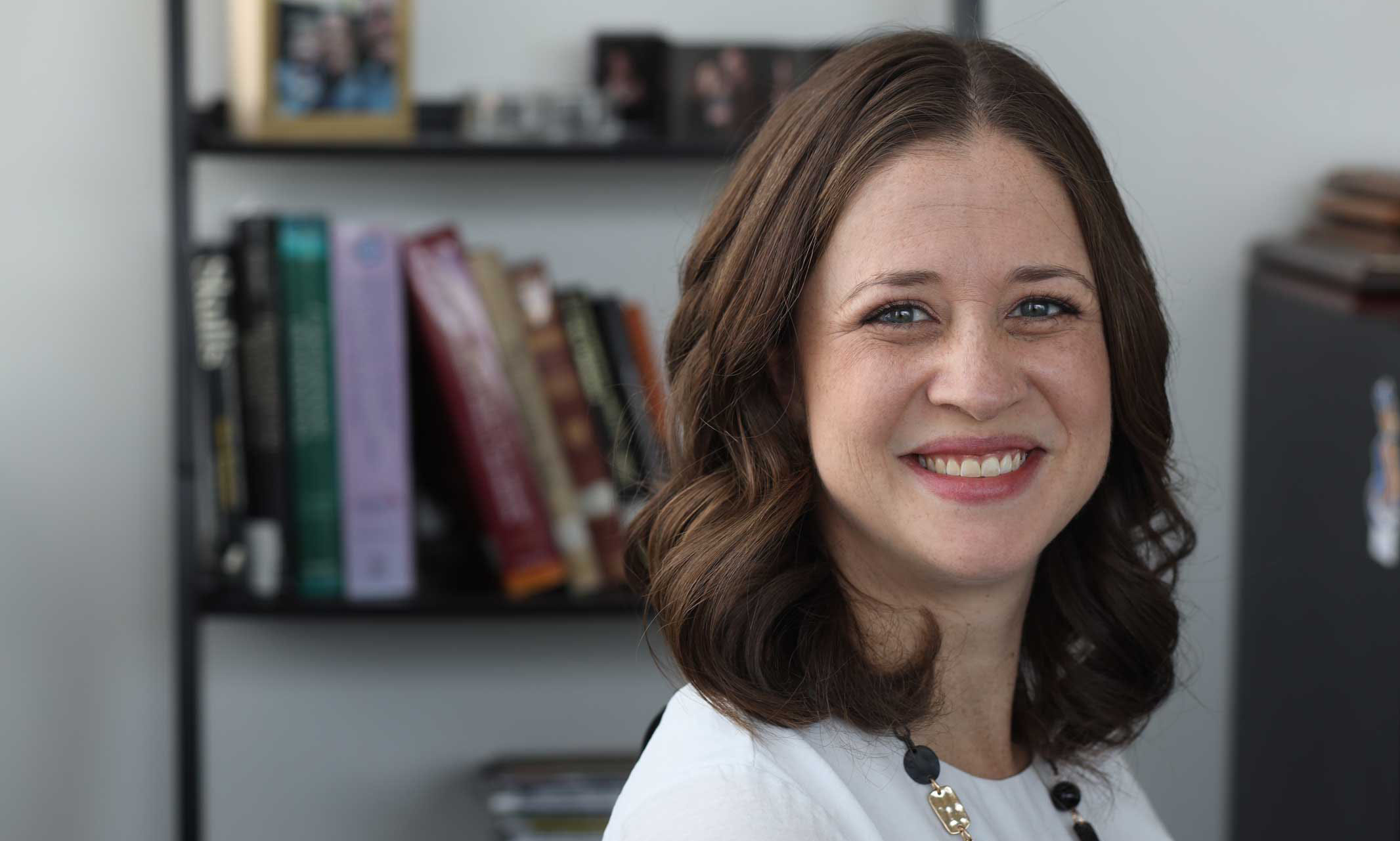From a fellowship to funding, big things will be happening in craniofacial bone development in the lab of researcher Erin Bumann, D.D.S., Ph.D., M.S. at the UMKC School of Dentistry.
Bumann is an assistant professor in the Department of Oral and Craniofacial Sciences. The primary goal of her lab is to identify nonsurgical methods to change the size and shape of the bones in the face in hopes that children either do not need to undergo surgery or need less invasive surgery to address craniofacial deformities.
Most recently, she’s received foundational funding from the Robert Woods Johnson Foundation, a philanthropic organization dedicated to public health. It’s especially meaningful for Bumann, whose grandfather is from Mexico, that the funding comes from the Harold Amos Medical Faculty Development Program. The program was created to increase the number of faculty from historically disadvantaged backgrounds and will offer four years of support for her research as well as opportunities to network with fellow scholars in the program including an annual meeting.
“I’m excited for the opportunity to have colleagues around me from similar backgrounds, having some difficult conversations,” said Bumann. “I’m looking forward to the opportunity to open up and have some honest conversations while also sharing resources and finding out what’s going on at other programs.”
Bumann has also been selected for the American Dental Association Gold Medal Fellowship. The award is only given out every three years to one individual nationally.
According to Bumann, her selection carries that much more weight because she was selected by one of her role models, Martha J. Somerman, D.D.S, Ph.D. Somerman was the first woman to win the ADA Gold Medal Award for Excellence in Dental Research. She is also the current past director of the National Institute of Dental and Craniofacial Research, an organization that has awarded Bumann a grant that enabled her to continue her research into jaw development in quail and duck eggs.
“Because of the pandemic I hadn’t had a chance to interact with her as much as in past years, so it’s been wonderful to catch up with her and reconnect,” said Bumann. “It’s really meant a great deal that someone with her breadth of experience looked at my body of work and saw it as impactful.”
Another opportunity that comes with the award is presenting her research as a continuing education course at the American Dental Association’s 2023 annual meeting.
“It’s such an important part of research, making sure that the research that we’re doing can directly impact patients,” said Bumann. “There can be a disconnect between dentistry and the research, so communicating with our clinical colleagues is so important and this is a great opportunity for that.”
Mentorship is an important part of Bumann’s work, not only as a mentee but also a mentor to others. “I’ve been really blessed all along my entire career path to have wonderful mentors,” she said. “Mentorship is a big part of what I enjoy and I think it’s so important to pay it forward."
Bumann is an active mentor for a number of groups on campus. She is a part of the Avanzando Mentorship Program, which is designed to support Latinx students on campus with individualized support in reaching their academic and career pursuits. She also mentors through the Students Training in Academia, Health and Research (STAHR) Partnership, collaborative program with the UMKC schools of medicine, dentistry and pharmacy. The program is designed to increase the number of students from disadvantaged backgrounds entering health care programs.
For Bumann’s time in the Harold Amos Medical Faculty Development Program, she’s excited to see where other schools have had success in their diversity programs. “I look forward to learning from colleagues at other schools and institutions who’ve already tried different approaches and finding out their best practices,” she said. “I’m hoping to bring some new ideas back with me to UMKC.”
Ultimately, one of the greatest gifts in mentorship for Bumann is seeing her mentees reach their ultimate goal at UMKC. “Last year, five of my past mentees – either from the STAHR program or my lab – all graduated,” she said. “To see that first cohort walk across the stage at Commencement was really special.”

